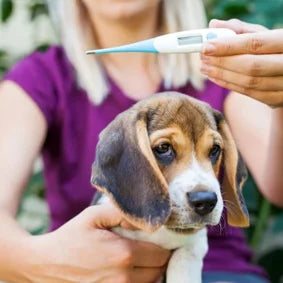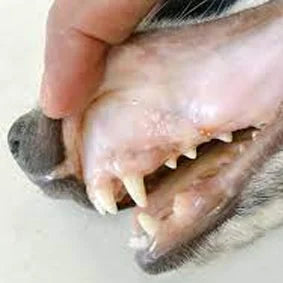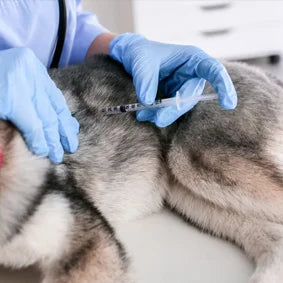Fever in pets, much like in humans, is a natural response to infection, inflammation, or other underlying health issues. It is the body’s way of fighting off infections and stimulating the immune system. If you suspect that your pet has a fever, it is essential to monitor their temperature and seek veterinary attention if necessary.
When pets experience constipation, it means that the feces are not moving smoothly through the digestive system and are becoming backed up in the colon. This can be caused by a variety of factors, including
-
Infections
Bacterial, viral, and fungal infections can trigger a fever in pets. Common examples include respiratory infections, urinary tract infections, and skin infections.
-
Inflammatory Conditions
Conditions such as pancreatitis, arthritis, and inflammatory bowel disease may lead to a fever.
-
Immune System Disorders
Autoimmune diseases can cause the immune system to attack the body's own tissues, resulting in inflammation and fever.
-
Heat Stroke
Exposure to extreme heat or being locked in a hot car can cause heatstroke and a high body temperature.
Tips for preventing Fever in pets
Preventing fever in pets involves proactive measures for their well-being. Regular veterinary check-ups and updated vaccinations detect health issues early. Administering parasite preventatives safeguards against diseases. Ensure hydration, provide a balanced diet, and avoid extreme temperatures. Conduct thorough tick checks after outdoor activities. These preventive steps promote overall health, reducing the likelihood of fever and related complications in pets.
Symptoms of Pyrexia in pets
Here are common symptoms to look out for:
-
Elevated Body Temperature
The most apparent sign of fever is an increase in body temperature above the normal range for the specific species. For dogs, a rectal temperature above 102.5°F (38.6°C) and for cats above 102.5°F (39.2°C) is considered feverish.
-
Lethargy
Pets with a fever often appear weak, tired, and less active than usual. They may be reluctant to move or play.
-
Loss Of Appetite
A fever can cause a decreased appetite in pets. They may show little interest in their food or refuse to eat altogether.
-
Shivering Or Tremors
Some pets may experience shivering or muscle tremors as the body tries to regulate its temperature.
-
Warm Ears And Paws
You may notice that your pet's ears and paws feel warmer than usual when touched.
-
Dry Nose
A fever can lead to a dry and warm nose in pets, although it's essential to note that a dry nose doesn't always indicate a fever.
-
Rapid Breathing And Heart Rate
Pets with a fever may breathe faster than usual and have an elevated heart rate.
-
Coughing Or Sneezing
If the fever is caused by an infection, your pet may exhibit coughing or sneezing as part of the overall illness.
Treat your Pet from Fever or Pyrexia problem with Dr.Goel’s Pyrofine
Homeopathic Veterinary Medicine PYROFINE DROPS for pets are the best remedy for FEVER OR PYREXIA. It is the most effective homeopathic formulation for dogs & cats in case of hypo or hyperthermia to maintain a normal body temperature when exposed to excess cold or heat suddenly and even to treat pyrexia of any underlying disease conditions. PYROFINE is handy at times when a veterinarian cannot be approached during odd hours, and the pet is suffering from a fever of unknown etiology
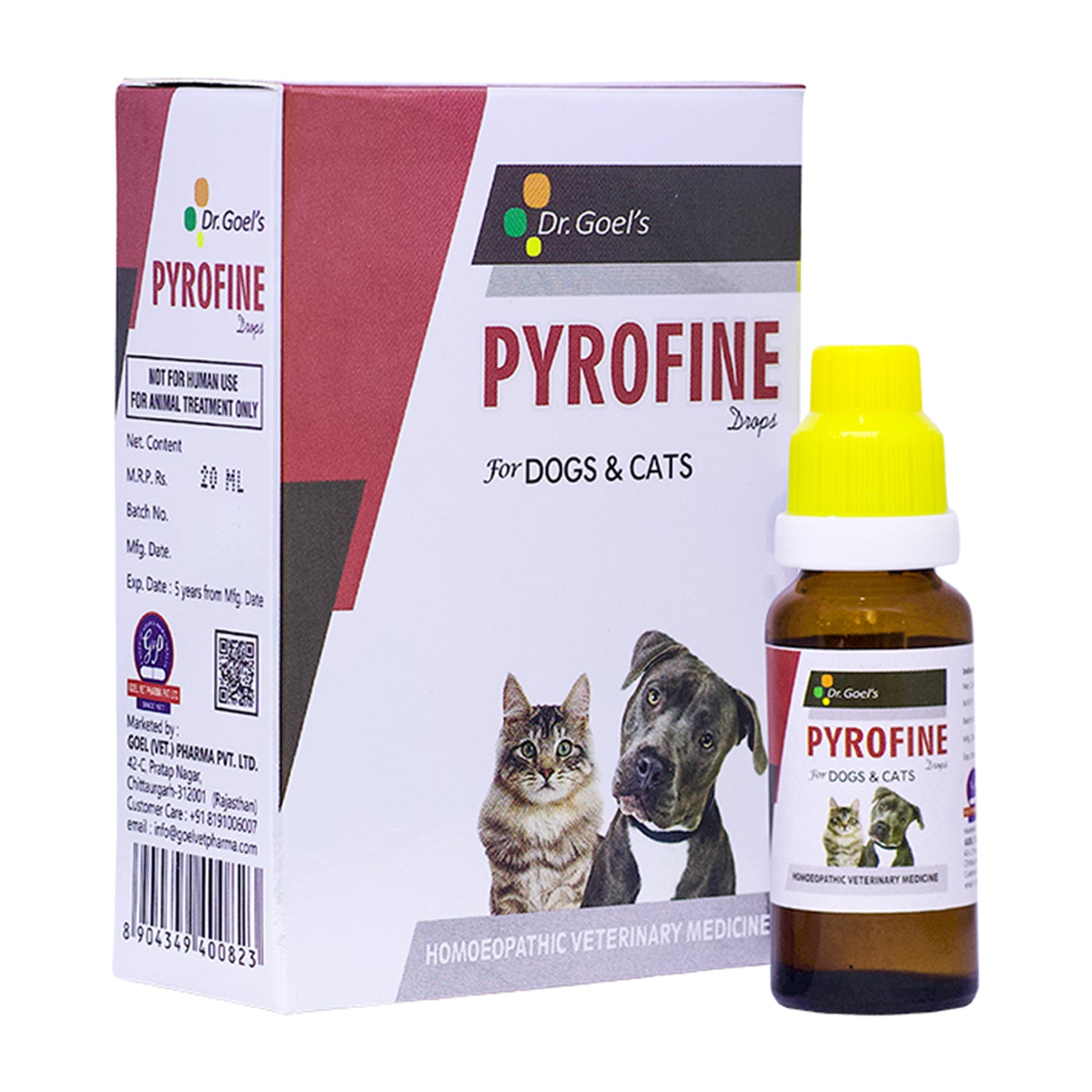
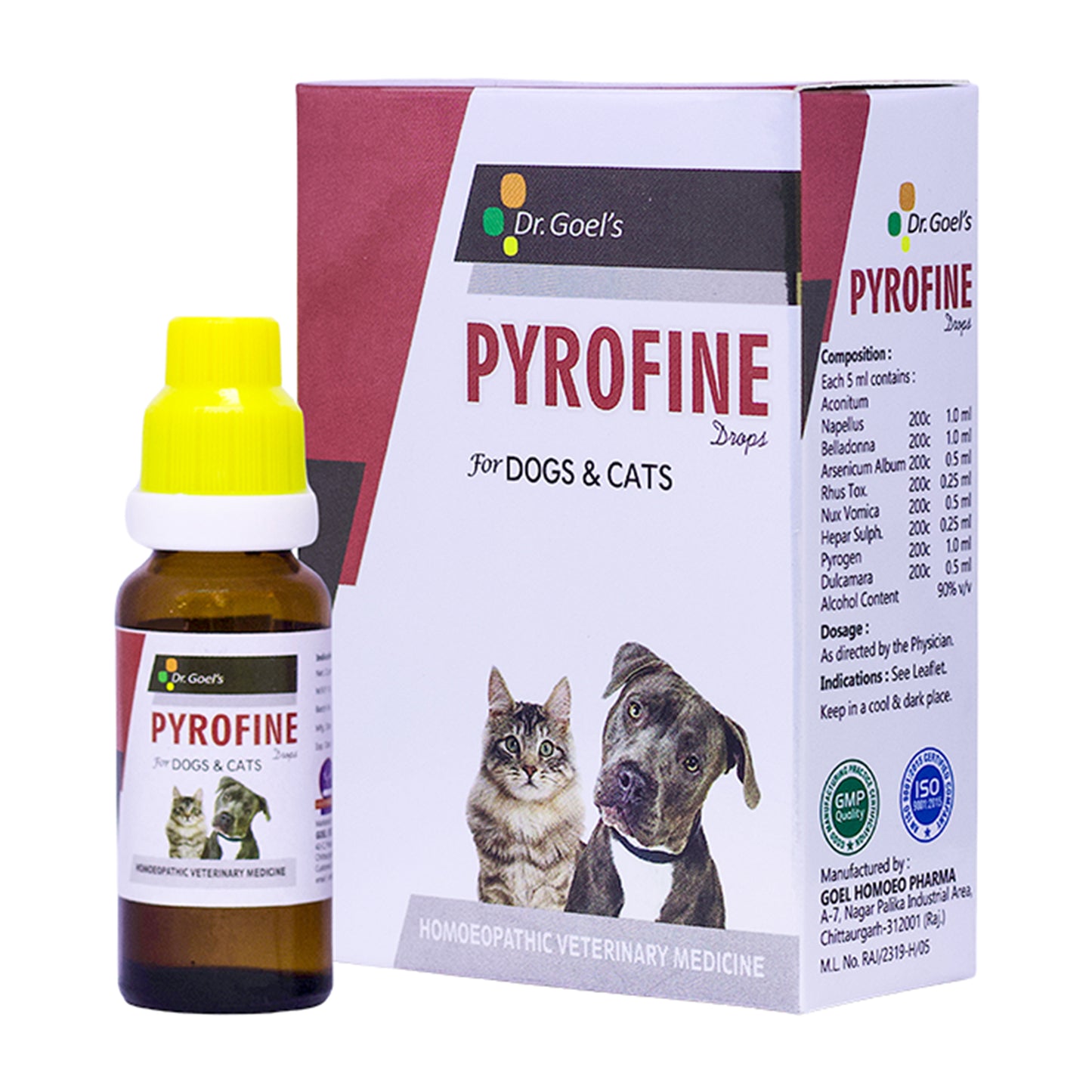
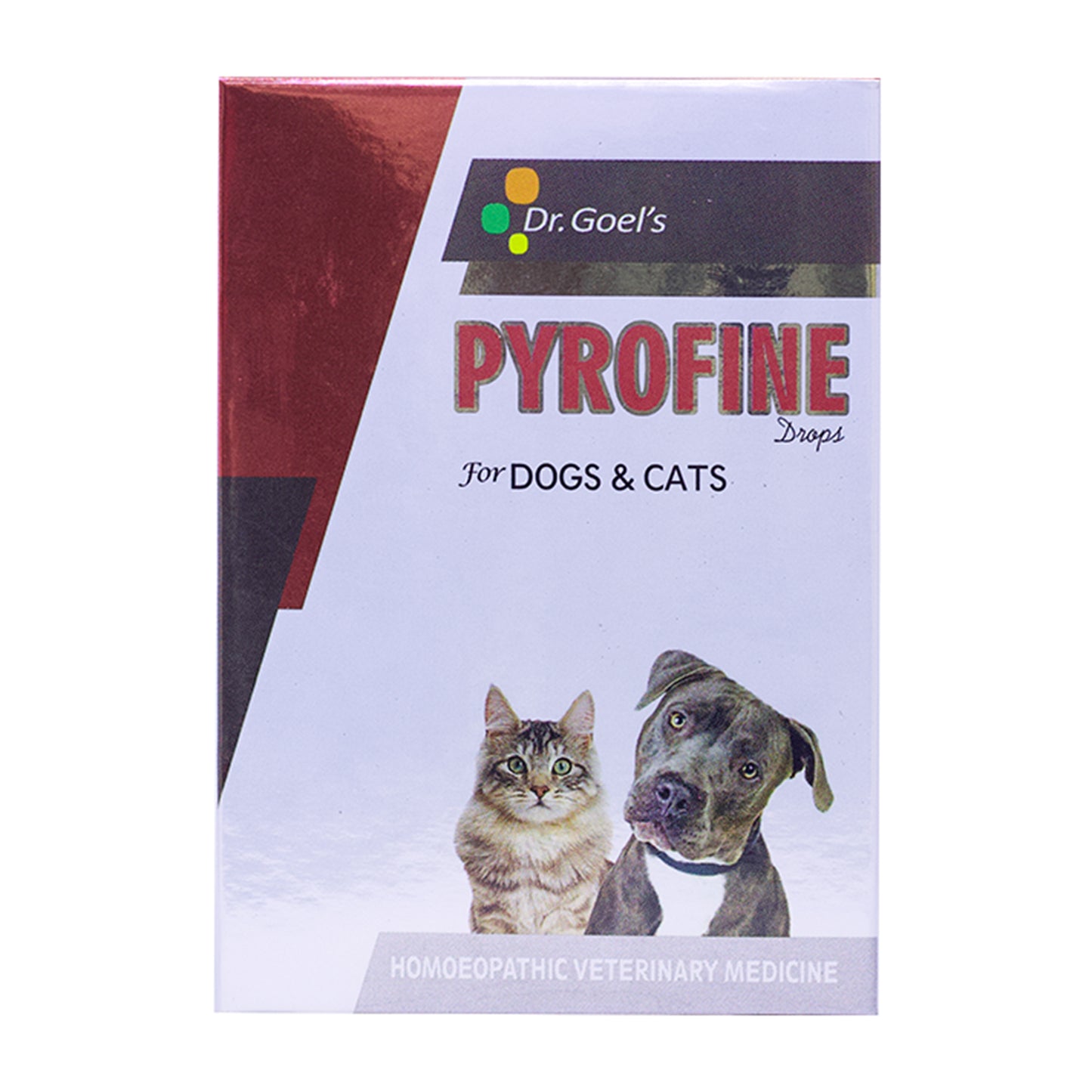
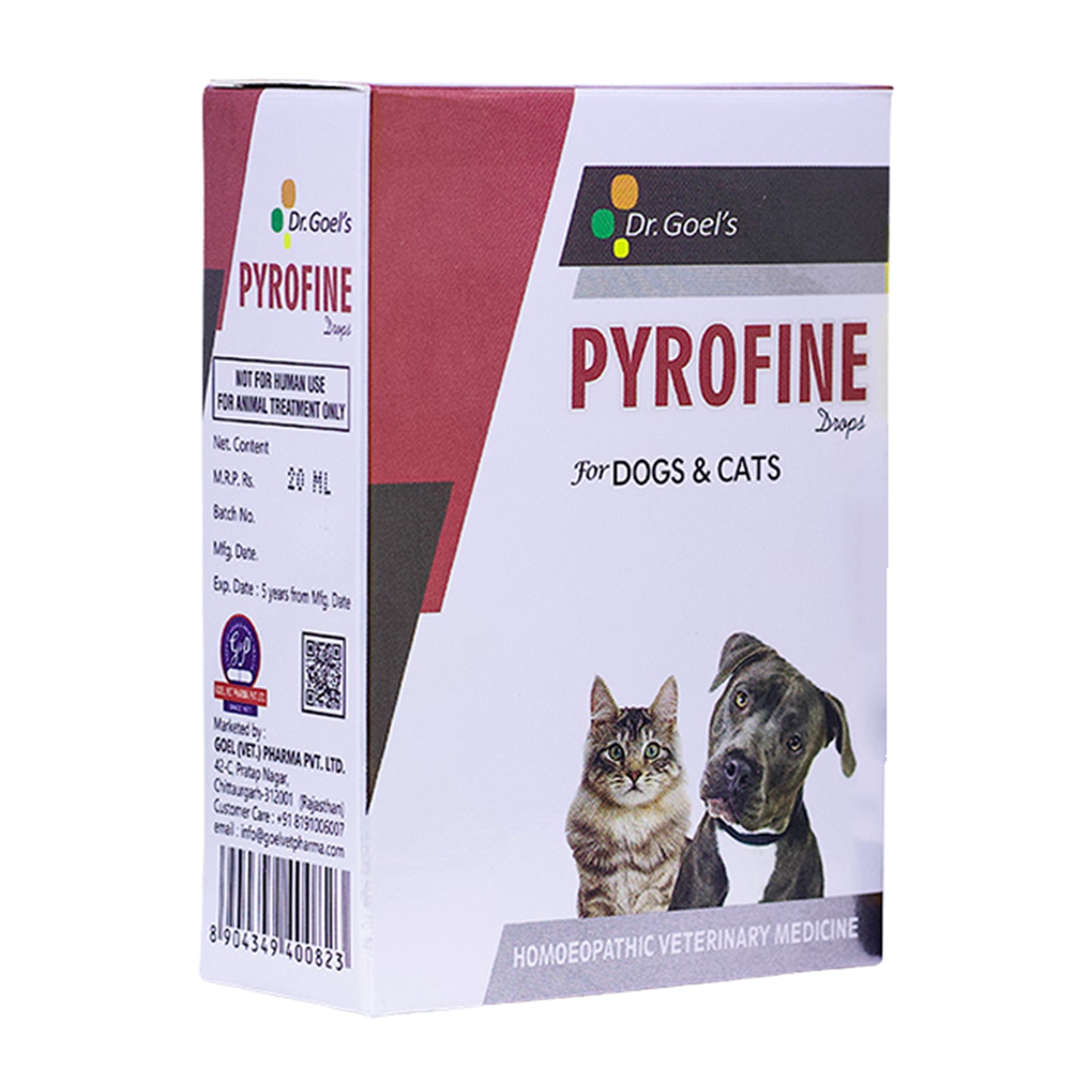
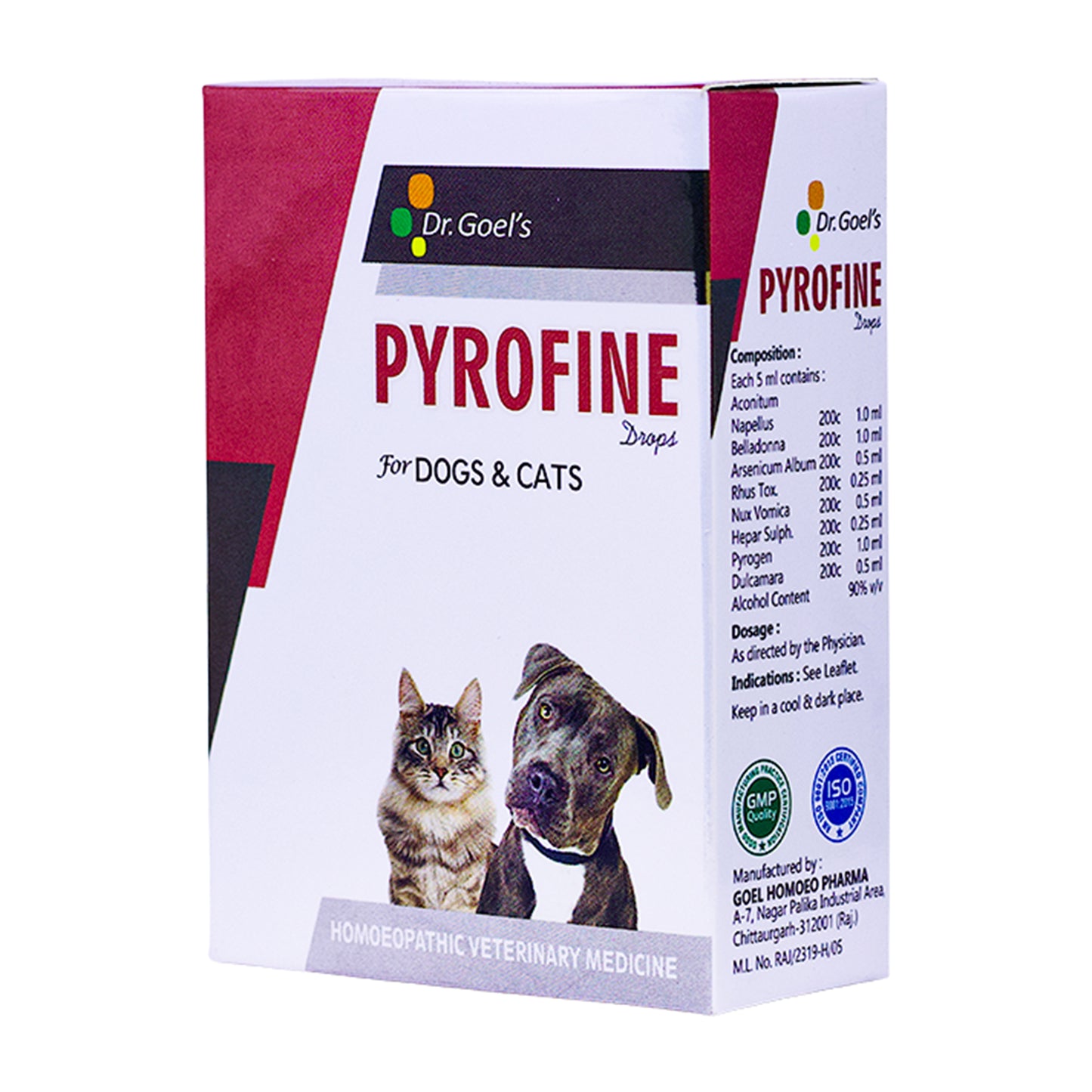
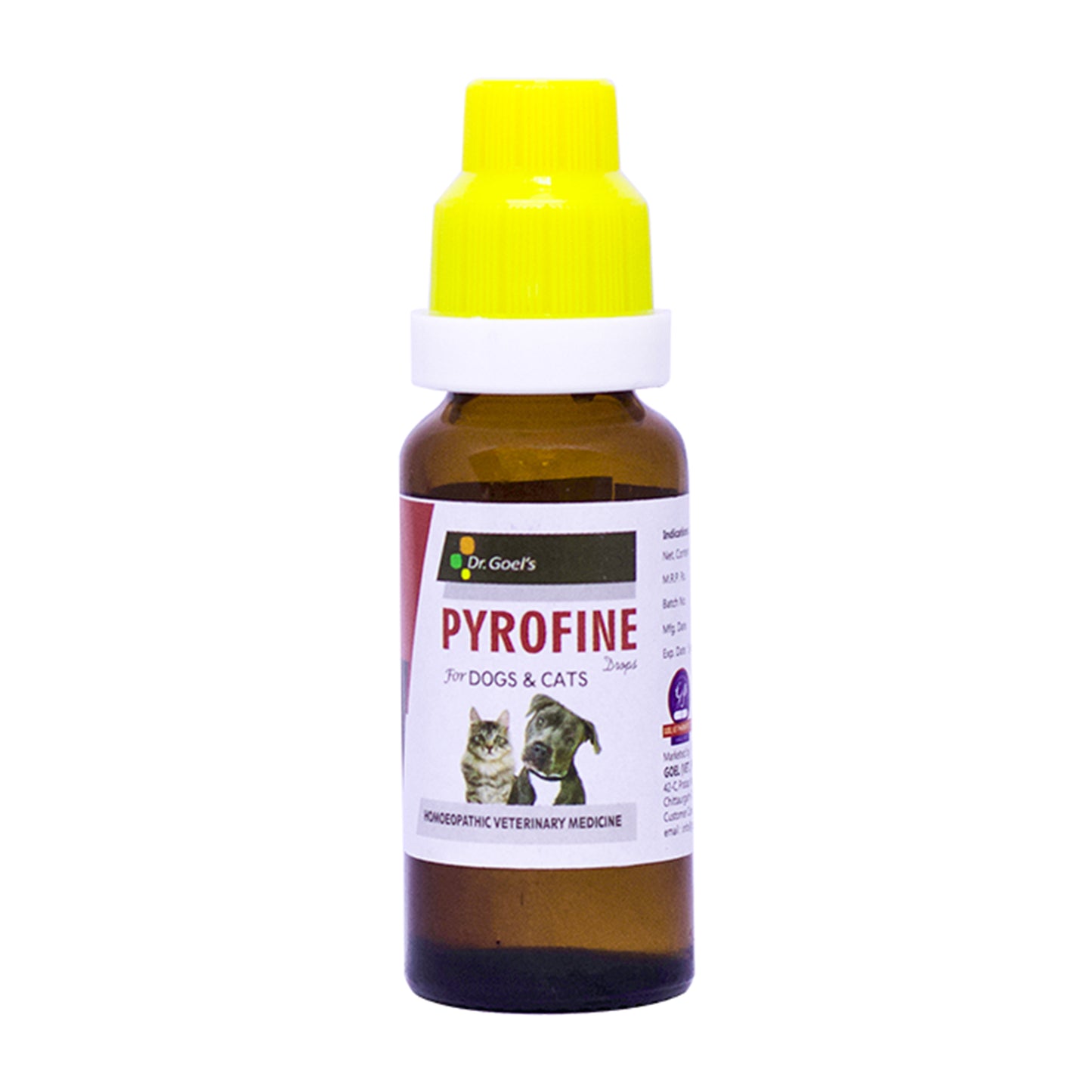


Me & My MOBILITY
GRANULES FOR PETS (For Restoration of Physical Movement in Pets)
Me & My Mobility Pet supplementation is very useful for pets showing symptoms of articular or muscular rheumatism with or without inflammatory and febrile complaints. Other symptoms like stiff neck, rheumatic pain in the shoulders, shifting whitlow, twitching, cramps, stiffness, pain in the joints, cracking of joints, etc., are also improved with this supplement.
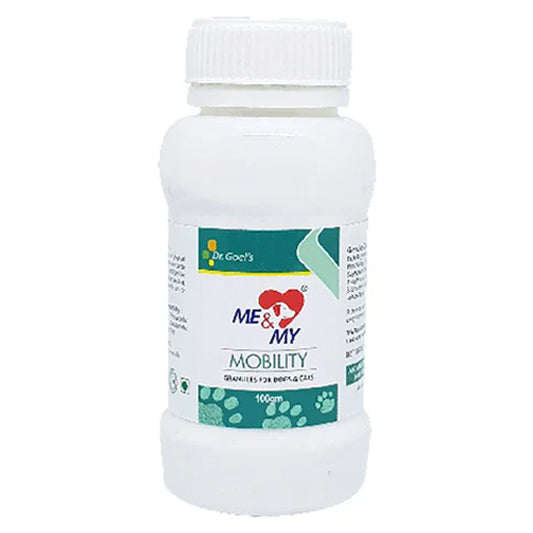
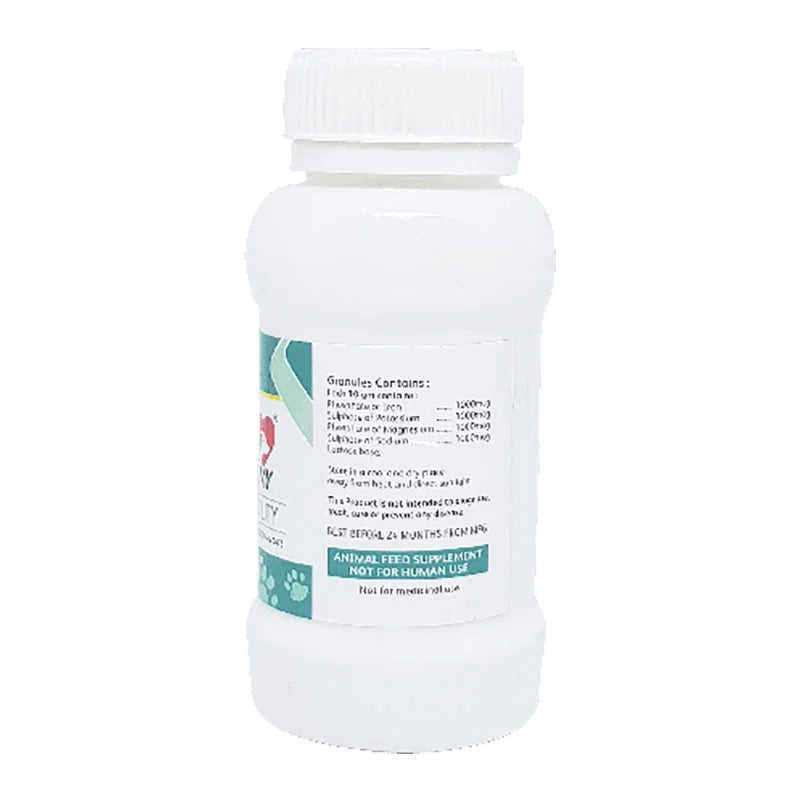



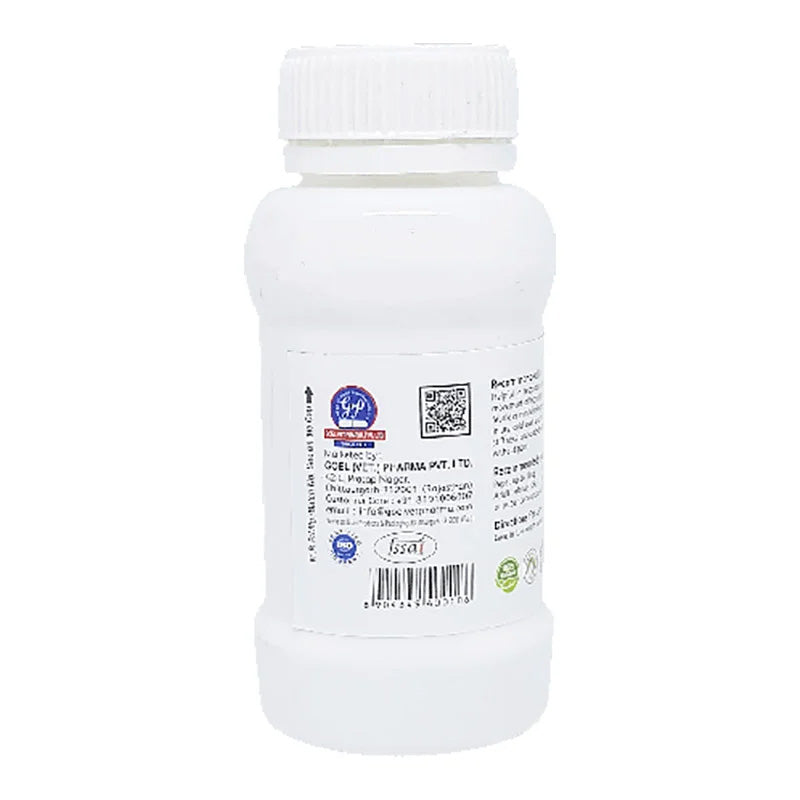
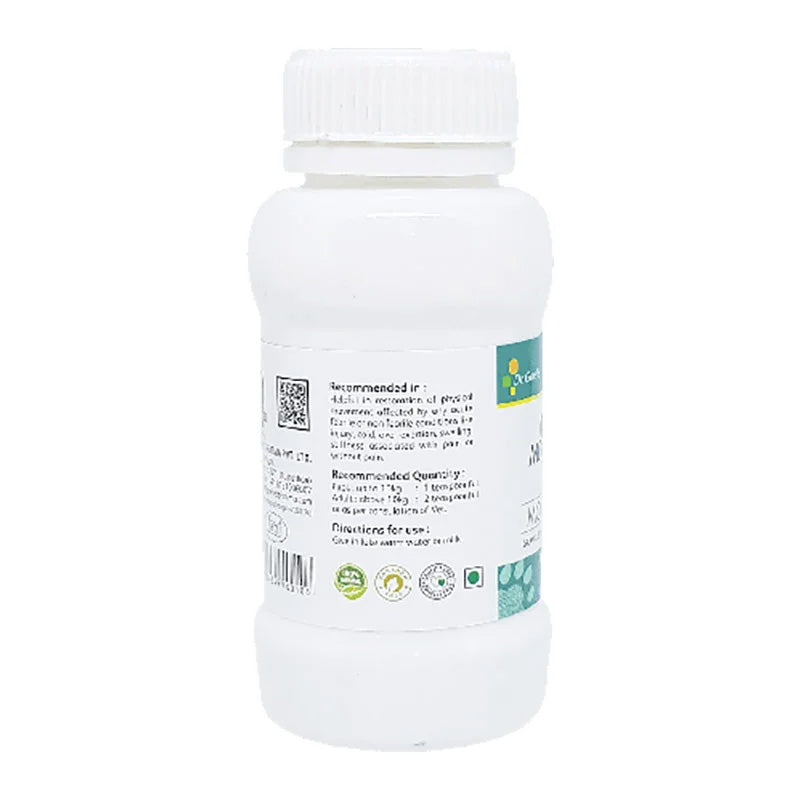
Trusted by Veterinarians
“As a veterinarian, I am thrilled to endorse Dr. Goel Vet Pharma’s homeopathic products for our furry friends. Their commitment to advancing homeopathic veterinary medicine is evident in the exceptional quality of their products. The innovative solutions they provide have significantly enhanced our ability to care for our animal patients, ensuring optimal health outcomes. I highly recommend Dr. Goel Vet Pharma’s products to pet parents for their unwavering dedication to the well-being of pet animals and the invaluable support they offer to the veterinarian community.”
– Dr. Sakshi Sharma (B.V.sc. & A.H. M.V.Sc , NET)














